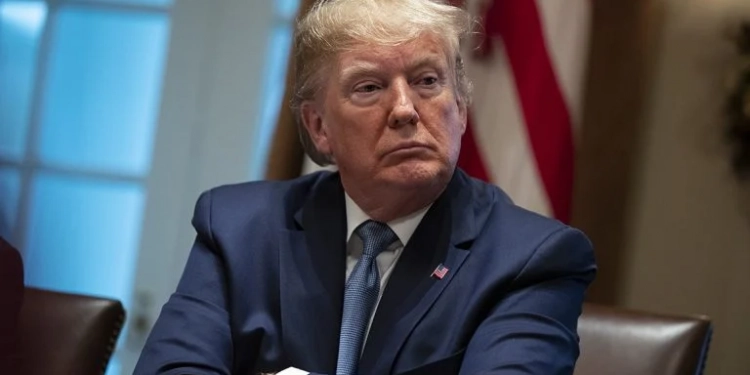
U.S. Supreme Court rejects Trump’s bid to freeze $2bn foreign aid
The United States Supreme Court, on Wednesday, rejected some of President Donald Trump administration’s effort to eliminate foreign aid that has been authorised by congress.
In a ruling on Tuesday, the justices upheld a lower court order that required the Trump administration to pay contractors for foreign aid work that has already been completed, which is roughly $2 billion.
Justice Samuel Alito dissented, and was joined by Justices Clarence Thomas, Neil Gorsuch and Brett Kavanaugh.
The court’s action is unlikely to be its last word in this case, which started two weeks ago when two major foreign aid contractors — the AIDS Vaccine Advocacy Coalition and the Global Health Council — went to court to challenge the Trump administration’s cutoff of funds at the U.S. Agency for International Development (USAID) and the State Department.
Federal Judge, Amir Ali, nominated by former President Joe Biden and confirmed to the bench in 2024, subsequently issued a temporary restraining order to allow the continuation of foreign aid funding while he examined the issues in the case.
Six days later, the Coalition went back to court seeking a contempt order for the administration’s alleged failure to comply. Justice Ali granted their motion to enforce his order, but did not cite the government for contempt.
On Tuesday, with only days left before the temporary restraining order would expire, the judge issued an order specifying that the administration had to immediately pay its foreign aid bills for services rendered before the temporary restraining order.
That prompted Sarah Harris, the Trump administration’s acting solicitor general, to ask the U.S. Court of Appeals for the District of Columbia, to block Ali’s order. But the appeals court quickly refused to intervene, citing a lack or jurisdiction over temporary restraining orders, which last only short time.
With the deadline for compliance just few hours away, the administration appealed to Chief Justice John Roberts in his capacity as the justice with supervision over the D.C. Circuit Court. Roberts rejected the appeal, issuing what is known as an “administrative stay” to allow more time for briefs to be filed.
On Wednesday, the court finally issued an order, siding with Justice Ali.
The order means that the government will have to honour at least part of its financial obligations. It is unclear whether the court will ultimately compel the government to spend all the money that congress has appropriated.
The Trump administration had argued that the lower court order’s deadline, giving mere days for the government to comply, was not feasible. Moreover, it claimed that the February 25 order had “thrown what should be an orderly review by the government into chaos because it did not provide the government sufficient time to discern which payment obligations are legitimate.”
The administration also suggested that the lower court had ventured outside the bounds of its constitutional authority.
- FIFA to pay $1 billion prize money for club World Cup
- Rivers: Peter Obi denies calling Supreme Court judgement reckless
- Fayemi: Natasha never accused me of sexual harassment
The AIDS Vaccine Advocacy Coalition countered that the emergency the Trump administration complained of was “an emergency of its own making.” The Coalition noted that the government was initially ordered to resume this funding two weeks ago, but took no steps to comply with that order.
“Only after the temporary restraining order had almost run its course did Judge Ali issue his February 25 minute order to force the government to comply. The government was merely being asked to return to the status quo by honoring its existing contracts,” the Coalition maintained.
Share your story or advertise with us: Whatsapp: +2348033202396 Email: sentinelnewsng@gmail.com








